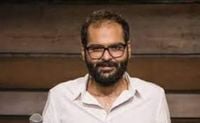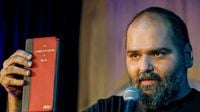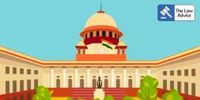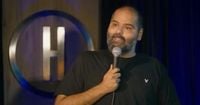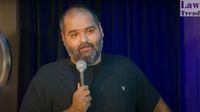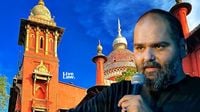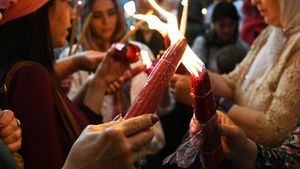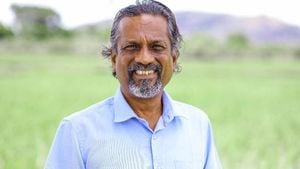The Bombay High Court has reserved its decision on Kunal Kamra's petition seeking to quash an FIR against him for allegedly defamatory comments directed at Maharashtra Deputy Chief Minister Eknath Shinde. The court also extended Kamra’s temporary protection from arrest pending the final judgment.
The FIR was lodged at Khar police station in Mumbai, accusing Kamra of derogatorily labeling Shinde as “gaddar” (traitor) during a comedic performance. This incident led to an uproar, including vandalism at the studio by Shiv Sena members where the act was recorded. Kamra’s legal representative, Navroz Seervai, argued that similar accusations had been made by political leaders against Shinde during the 2024 Maharashtra assembly elections, yet no legal actions were taken against them.
Seervai highlighted the intense political scrutiny Shinde faced, which was echoed in opposition campaigns and publications without resulting in any legal repercussions. During the performance, Kamra sang a parody song from “Dil To Pagal Hai,” using the contentious term and discussing Shinde’s 2022 split from Uddhav Thackeray and Shiv Sena.
Seervai emphasized that such political commentary, albeit sharp, should not be conflated with personal attacks warranting legal action. Opposing the plea, Public Prosecutor Hiten Venegaonkar argued that Kamra’s act transcended mere political satire, veering into personal attacks that could tarnish Shinde’s public image. Venegaonkar dismissed the humor in Kamra’s performance, categorizing it as a targeted attack rather than political critique.
The court’s inquiry into why police sought to record Kamra’s statement was met with the prosecution’s explanation of gathering necessary evidence for the FIR’s allegations. Addressing concerns over Kamra’s safety upon visiting Mumbai, Venegaonkar assured that the state would provide necessary security measures. The bench, comprising Justices S Kotwal and S Modak, did not specify a date for the final judgment but ensured that Kamra would not face arrest until the order is issued.
Kamra’s lawyer argued before the Bombay High Court that even 75 years after the Constitution came into existence, law enforcement authorities still seemed to be either ignorant of fundamental rights or did not care about them. Seervai made the statement while seeking the quashing of a case against the comedian for his satirical remarks ostensibly about Maharashtra Deputy Chief Minister Eknath Shinde.
Seervai argued that the case against Kamra fell under the “rarest of rare” category, as the legal machinery had been used by individuals who objected to him exercising his right to free speech. The counsel sought a stay on the investigation, saying that the Supreme Court had always struck down illegal attempts at censorship.
Kamra questioned why the Mumbai Police issued three summonses to him seeking his physical presence even though he had been getting death threats. He also asked why the police called for interrogation both the attendees of the show during which he made the remarks, and those who produced it. “This shows that even after 75 years of the existence of Constitution...Law enforcement machinery is ignorant of the fundamental right or does not care about the fundamental right,” Seervai told the court.
On the other hand, public prosecutor Hiten Venegaonkar, representing the state government, said that targeting one individual was not “humorous criticism” but was malicious in nature. He said that Kamra, having been a stand-up comedian for many years, could not have been oblivious to the consequences of his words. “He cannot use derogatory words and call it humour,” Venegaonkar said. “Public figures have rights too. The FIR clearly demonstrates that the statement sought to lower the person’s dignity in the society.”
Referring to the alleged death threats against Kamra, the public prosecutor told the court that he would be protected when he would travel to Mumbai in response to the summons. The case began when Kamra posted a video on his YouTube channel on March 23, 2025, in which he ostensibly criticized Shinde while performing a satirical version of a song from a Hindi film. The comedian alluded to Shinde as a “traitor” while referring to his 2022 rebellion against former Maharashtra Chief Minister Uddhav Thackeray and the ensuing political crisis in Maharashtra. He, however, did not mention Shinde by name.
After clips of the performance were widely shared on social media, members of the Shinde-led faction of the Shiv Sena on the night of March 23 vandalized The Habitat studio in Mumbai’s Khar area, where it was recorded. The next day, the Mumbai Police filed a case against Kamra under sections of the Bharatiya Nyaya Sanhita pertaining to defamation and public mischief. The police also arrested 12 members of the Shinde-led Shiv Sena for the vandalization of The Habitat studio. They, however, got bail on March 24.
The Madras High Court on Thursday, April 17, 2025, disposed of the transit anticipatory bail petition filed by comedian Kunal Kamra in connection with the FIR lodged against him in Mumbai over his alleged remarks against Maharashtra Deputy Chief Minister Eknath Shinde. Justice Sunder Mohan closed his petition after Kamra's Advocate V Suresh informed the court that the Bombay High Court had granted interim protection from arrest to the comedian while reserving orders in his plea for quashing the FIRs registered against him.
In the previous hearing, the Madras high court had extended the interim anticipatory bail granted to him till April 17. Kamra had approached the Madras High Court as he is a permanent resident of Villupuram town in Tamil Nadu. During the earlier hearings, he had informed the court that he had been receiving death threats and though he had informed the authorities about this, no action had been taken.
The Bombay High Court has not yet delivered its ruling, but the case has reignited the debate over the limits of artistic freedom, state censorship, and the role of law enforcement in a democratic society. As the proceedings continue, many are watching closely to see how the court balances the right to free speech against the need to protect public figures from defamatory remarks.
